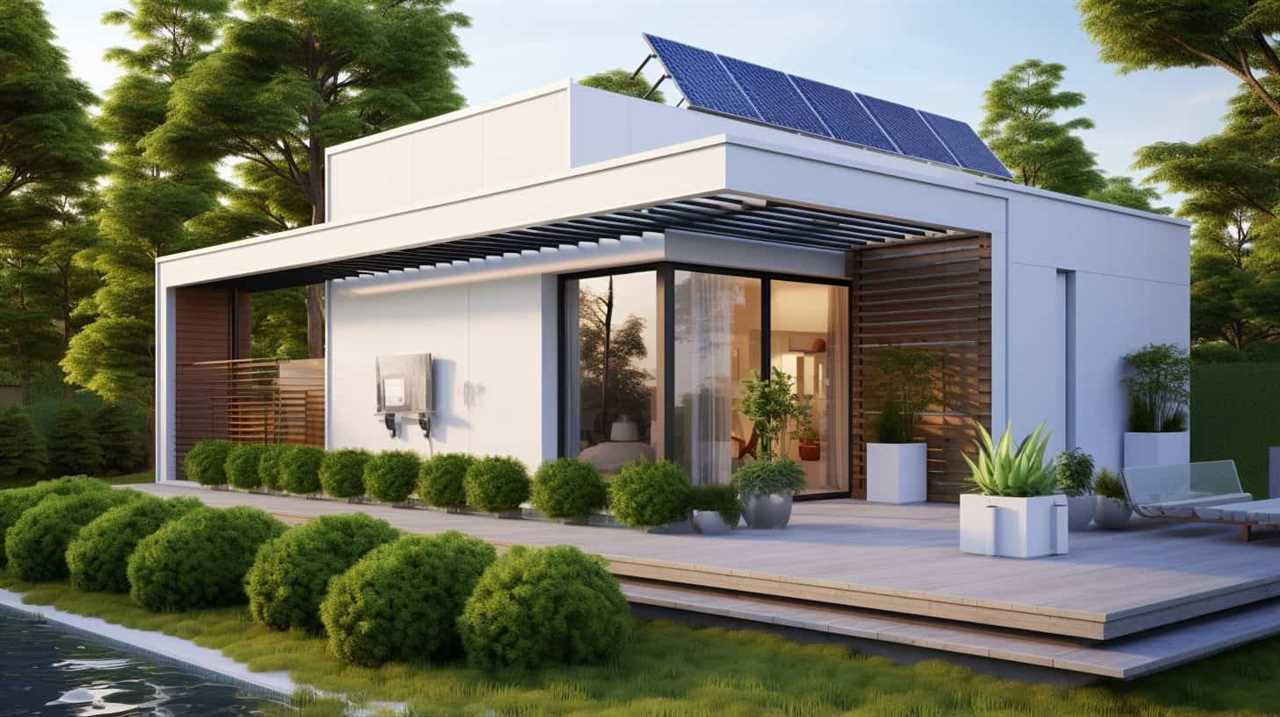We’ve all experienced the pain of expensive electricity bills, especially when it’s cold outside. But what if there was a solution to efficiently heating our homes and cutting costs at the same time? That’s where heat pump efficiency becomes important.
In this article, we’ll dive into the nitty-gritty of understanding heat pump efficiency ratings, factors that affect energy consumption, and how to calculate savings.
Plus, we’ll compare heat pump efficiency to other heating systems and provide tips for maximizing efficiency and minimizing those pesky electricity bills.
Key Takeaways
- Heat pump efficiency ratings serve as a benchmark for evaluating performance and help gauge energy-saving capabilities.
- Factors such as the size of the living space and insulation quality impact heat pump energy consumption.
- Calculating energy savings with an efficient heat pump involves considering factors like SEER rating, cost of electricity, and previous system’s energy consumption.
- Heat pumps have higher efficiency and significant energy savings compared to traditional heating systems, leading to lower carbon emissions and reduced greenhouse gas emissions.
Understanding Heat Pump Efficiency Ratings
We need to understand heat pump efficiency ratings to make informed decisions about energy usage. Heat pump efficiency standards serve as a benchmark for evaluating heat pump performance and determining their overall effectiveness. These ratings provide valuable information about how efficiently a heat pump can convert electricity into heat or cool air, allowing us to gauge its energy-saving capabilities.

Factors Affecting Heat Pump Energy Consumption
One factor that significantly affects heat pump energy consumption is the size of the living space being heated or cooled. A larger space requires more energy to maintain the desired temperature, as the heat pump needs to work harder to reach every corner. To optimize energy efficiency, it’s important to properly size the heat pump according to the square footage of the area.
Another factor that impacts energy consumption is the level of insulation in the building. Insufficient insulation allows heat to escape during winter and enter during summer, leading to increased energy usage.
Regular heat pump maintenance is also crucial for energy savings. Cleaning or replacing air filters, checking refrigerant levels, and ensuring proper airflow can all contribute to improved efficiency.
These energy-saving tips, combined with proper heat pump maintenance, can help homeowners reduce their energy consumption and lower their electricity bills.

Calculating Energy Savings With an Efficient Heat Pump
To calculate energy savings with an efficient heat pump, we need to consider factors such as the unit’s SEER rating, the cost of electricity, and the previous heating or cooling system’s energy consumption.
The SEER rating, or Seasonal Energy Efficiency Ratio, measures the efficiency of the heat pump in providing cooling during the warmer months. The higher the SEER rating, the more efficient the heat pump is, resulting in lower energy costs.
By comparing the cost of electricity and the previous system’s energy consumption, we can determine the potential energy savings with an efficient heat pump. By calculating the cost of operating the heat pump and comparing it to the cost of operating the previous system, we can determine the potential energy savings.
This calculation allows homeowners to make an informed decision about the cost-effectiveness and energy efficiency of installing an efficient heat pump.

Transition: Now that we understand how to calculate energy savings with an efficient heat pump, let’s move on to comparing heat pump efficiency to other heating systems.
Comparing Heat Pump Efficiency to Other Heating Systems
Comparing heat pump efficiency to other heating systems involves evaluating their performance and cost-effectiveness.
One important aspect to consider is the energy consumption comparison between different heating systems. Heat pumps are known for their high energy efficiency, as they transfer heat instead of generating it. This results in significant energy savings compared to traditional heating systems, such as furnaces or electric resistance heaters.
Additionally, an environmental impact analysis is crucial when comparing heating systems. Heat pumps have lower carbon emissions and contribute to reducing greenhouse gas emissions, making them a more environmentally friendly option.

Tips for Maximizing Heat Pump Efficiency and Minimizing Electricity Bills
Our top tips for maximizing heat pump efficiency and minimizing electricity bills are as follows:
-
Seasonal maintenance: Regularly schedule maintenance for your heat pump, especially before the start of each heating and cooling season. This includes cleaning or replacing air filters, checking refrigerant levels, and inspecting the outdoor unit for debris or obstructions. Proper maintenance ensures that your heat pump operates at peak efficiency, reducing energy consumption and lowering electricity bills.
-
Thermostat programming: Take advantage of the programmable thermostat feature on your heat pump. Set different temperature levels based on your daily routine and occupancy patterns. For example, you can lower the temperature when you’re away from home or asleep, and raise it before you return or wake up. This smart programming helps optimize energy usage and saves money on heating and cooling costs.
-
Regularly monitor and adjust settings: Keep an eye on your heat pump’s settings and make necessary adjustments. For instance, during the heating season, set your thermostat to the recommended temperature range of 68-72°F (20-22°C) for optimal comfort and efficiency. By being mindful of your heat pump’s settings, you can ensure that it operates efficiently and minimizes electricity consumption.

Frequently Asked Questions
What Are the Main Components of a Heat Pump and How Do They Work Together to Provide Heating and Cooling?
The main components of a heat pump are the compressor, condenser, evaporator, and expansion valve. They work together to transfer heat from one place to another, providing both heating and cooling capabilities.
Can a Heat Pump Be Used as the Sole Source of Heating and Cooling in a Home?
Yes, a heat pump can be used as the sole source of heating and cooling in a home. It offers cost savings in terms of heat pump installation costs and provides benefits over traditional heating and cooling systems.
Are There Any Government Incentives or Rebates Available for Installing a High-Efficiency Heat Pump?
Yes, there are government incentives and rebates available for installing a high-efficiency heat pump. These programs aim to promote energy efficiency and reduce carbon emissions. Taking advantage of these incentives can significantly lower the cost of installing a heat pump.
How Does the Size and Layout of a Home Affect the Efficiency of a Heat Pump?
The size and layout of a home can significantly impact the efficiency of a heat pump. Factors such as home insulation and climate considerations play a crucial role in determining how well a heat pump can effectively heat or cool the space.

Are There Any Maintenance Tasks That Homeowners Should Perform Regularly to Ensure Optimal Heat Pump Efficiency?
Regular maintenance tasks for optimal heat pump efficiency include cleaning or replacing air filters, checking and cleaning coils, and inspecting electrical connections. Common problems like refrigerant leaks can be addressed by certified technicians.
Conclusion
In conclusion, understanding heat pump efficiency ratings and factors that affect energy consumption is crucial for calculating energy savings and comparing heat pump efficiency to other heating systems.
By maximizing heat pump efficiency and minimizing electricity bills, we can save money and reduce our environmental impact.
As the saying goes, ‘A penny saved is a penny earned,’ so let’s invest in efficient heat pumps to reap the long-term benefits.










